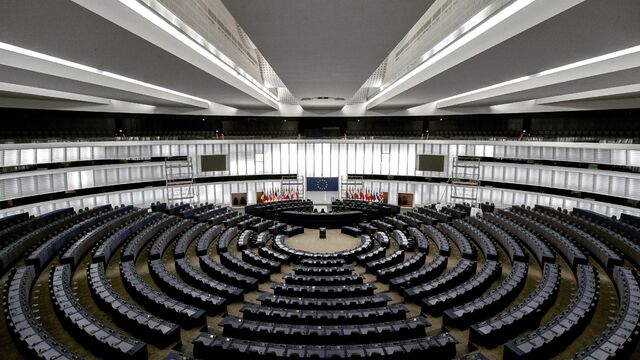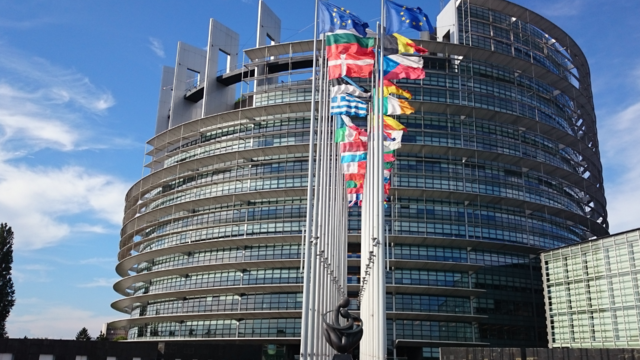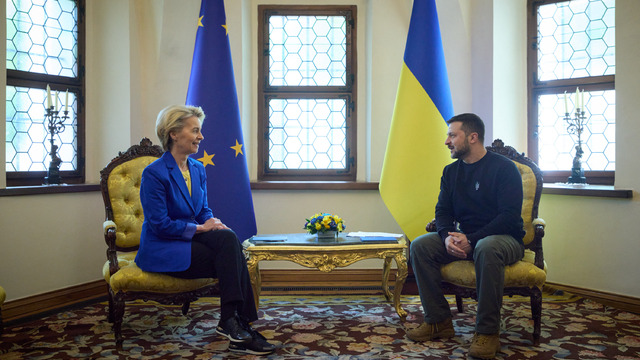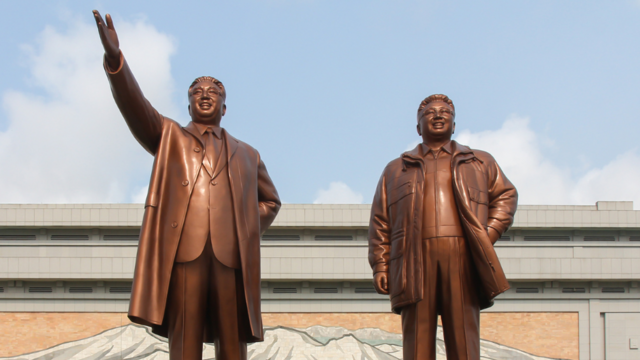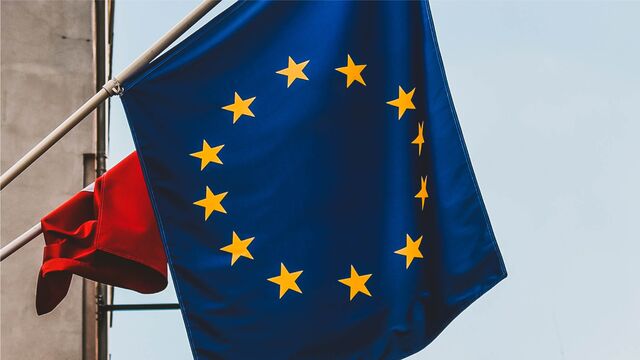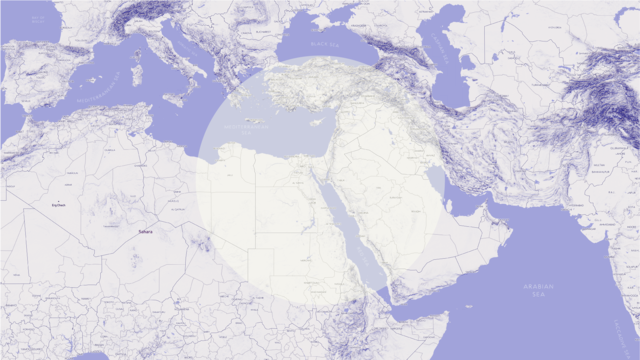The Diplomatic Rapprochement between Turkey and Egypt: Implications and Recommendations for the Czech Presidency of the EU
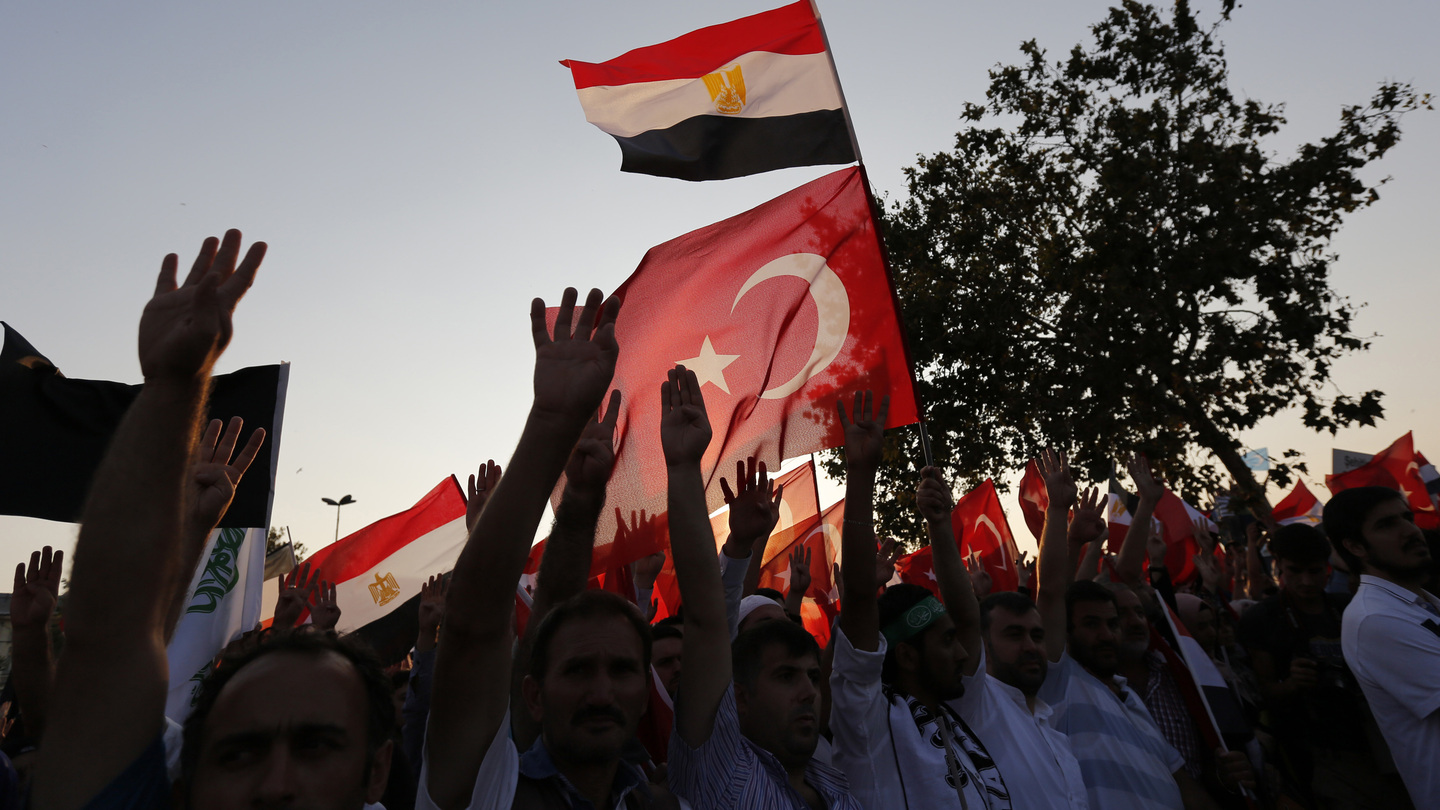
paper
The recent rapprochement between Turkey and Egypt could be the key to the stabilization of the situation in Libya, which is crucial for downgrading the Russian diplomatic and military expansion in the EU’s southern neighborhood, and for reducing the EU’s dependence on Russian energy. It could also be an opportunity to alleviate the refugee problem in the EU’s southern neighborhood at a time when the EU is challenged by the influx of millions of Ukrainian refugees into its borders. The Czech presidency of the EU can play an important role in this respect and contribute to the EU’s support of constructive relations between Turkey and Egypt within this evolving environment.
Introduction
The Russian invasion of Ukraine altered the priorities of the trio presidency (France, Czechia and Sweden), sidelining soft issues such as social equity, and democratization of the countries in the EU’s neighborhood, while spotlighting security & defense, energy security and the urgency of new enlargement strategies against the Russian threat. Given the collective memories and geopolitical concerns of the Central and Eastern European (CEE) countries, it is reasonable for Czechia to address the CEE countries’ security concerns during its presidency and focus on its own know-how and competencies in this regard. To this end, the Czech government, taking up the presidency of the Council of the European Union, announced as its priorities the management of the refugee crisis and Ukraine’s post-war recovery, energy security, strengthening Europe’s defense capabilities and cyberspace security, strategic resilience of the European economy and resilience of
democratic institutions within the EU.
As such, the EU’s relations with its southern neighborhood partners as well as with Turkey may not be the most pressing issues for the Czech presidency to deal with. This, however, does not yet mean that the strategic developments in the MENA, i.e., the rapprochement between Egypt and Turkey, should be sidelined. Extremist violence, organized crime and irregular migration continue to produce instability and fragility across the EU’s southern neighborhood. The spillover effects of the war in Ukraine, such as higher energy prices and food insecurity, are likely to add more turmoil to the ongoing crises in these countries.
A future cooperation with Egypt and Turkey hence should be kept in sight as a possible result of the ongoing rapprochement between the two countries. Both countries will be needed for stabilizing the situation in Libya. Amid the tensions with Russia, this could meet the priorities of the EU in replacing the Russian fossil fuels with the Eastern Mediterranean Gas Pipeline, reducing Russian diplomatic and military expansion in the EU’s southern neighborhood and alleviating the refugee problem in this region at a time when about eight
million Ukrainians are expected to migrate to the EU.
Hence, while in high politics the Czech presidency can prioritize issues pertaining to Ukraine and the Western Balkans during the following months, it can still open the channels for debate at the lower level with mid-range diplomats and policymakers on issues related to Turkey and the EU’s southern neighborhood partners to prepare the grounds for more strategic decisions on these issues for the upcoming presidency. In this sense, the Czech presidency should be seen as an opportunity that can provide the time and venue for
considering the issues of stability in the southern neighborhood in a more structured way among the EU institutions and policymakers.
The 2013–2021 Diplomatic Crisis Between Turkey and Egypt
In 2013, the diplomatic relations between Turkey and Egypt were suspended after the Egyptian President Mohammed Morsi was overthrown by the then-Minister of Defense Abdel-Fattah al-Sisi, following 4 days of massive demonstrations. As a member of the Muslim Brotherhood (MB), Morsi was elected in 2012 and was ideologically close to President Erdoğan’s party, favoring diplomatic relations with Ankara. Consequently, Turkey harshly criticized Morsi’s dismissal and the subsequent return to power of the military apparatus. In response, Egypt expelled the Turkish ambassador in Cairo, and started denouncing Ankara for allegedly supporting the MB everywhere in the Arab world following the 2011 uprising and threatening the regional stability in order to export its political model and expand its regional influence. Likewise, the Turkish government expelled the Egyptian ambassador in Ankara.
Turkey has since been hosting a large part of the exiled MB members in its territory, thus adding to the deterioration of the bilateral relations. Furthermore, the tensions between both sides were reflected in other regional disputes. Turkey and Egypt have been supporting opposite sides in the Libyan conflict as well as in the Syrian war. Moreover, in 2020, following the discovery of natural gas in the Mediterranean, Egypt established a partnership with Cyprus, Greece, Israel, Italy, Jordan, and Palestine on the East Med Gas Forum, excluding Turkey.
The Middle East has been marked during the last decade by an antagonism between two regional alliances: Turkey and Qatar on one hand, and Egypt, Saudi Arabia and the UAE on the other. This regional rivalry culminated in the Qatar diplomatic crisis of 2017–2021. Due to the fading support of the Biden administration and the continuation of the Yemeni civil war, Saudi Arabia and its allies eventually abandoned their sanctions against Doha last year.
In both countries, the rule of law, the situation of human rights, and the democratic institutions have deteriorated quickly during this period. The West in general and the EU proved themselves unable to prevent this de-democratization, illustrating the limits of democracy promotion. External calls to respect the rule of law have seemingly lost in efficiency by providing the authoritarian actors with an opportunity to picture themselves as defenders of the national interests against foreign agendas. Moreover, these actors have been able to secure the support of regimes pushing for a reinforcement of authoritarianism at a global level, such as China and Russia. However, the Russian aggression in Ukraine has been a major game changer. Despite the growing shift of Egypt and Turkey away from democratic norms, the EU still needs to find ways to work with them in a cautious manner to thwart the Russian expansion in its neighborhood and cooperate with them on
such issues as the refugee problem and energy security.
The 2021 Diplomatic Rapprochement
In the face of severe economic and political challenges, an opportunity for a rapprochement between Egypt and Turkey emerged in May 2021. The change of leadership in the US in 2020 put both countries under pressure as the Biden administration pursued a more balanced policy toward Egypt than President Trump and made it clear to Turkey that it would not refrain from having open conflicts with it. Egypt had cooling relations with its traditional allies, Saudi Arabia and the UAE, which started contributing less and less to the financing of Egypt’s budget deficits. On the other side, the geopolitical isolation ofTurkey, the falls of MB-aligned governments from Tunisia to Sudan and the decline in the approval rating of President Erdoğan in the country have pushed him to make amends with powers hostile to the MB. With the escalation of the Ukrainian-Russian conflict, both Cairo and Ankara are aiming to gain more leverage through new material resources and partnerships.
The diplomatic rapprochement reached a milestone in April 2022 as for the first time since the deterioration of the relations, Ankara decided to appoint an ambassador to fill the chargé dʼaffaires position in Cairo. Just as Turkey took steps of normalization with Saudi Arabia and Israel, it is likely to follow a similar path in regard to Egypt. Upon his return to Turkey from his visit to Saudi Arabia on April 4th, President Erdoğan signalled the need to take positive steps in the relations between Egypt and Turkey at the highest level and that it was time to ‘establish this unity and solidarity’. With such signals of change, the fate of the Egyptian opponents in Turkey (mainly the MB and their allies) remains a question mark and could become a bargaining tool for Erdoğan in the near future. Given the autocratic orientations of both governments, it is needless to mention that the issue of human rights is likely to be abandoned for the sake of regional stability.
The Remaining Points Of Contention
While both countries express interest in normalizing their diplomatic relations, Ankara and Cairo remain divided on a few domestic and foreign policy issues: at the domestic level, both countries maintain their grievances regarding the activities of media channels. While Ankara took some steps to cut off the MB-affiliated TV channels based in Turkey, there is a need for more to be done in this regard. Moreover, Ankara conceives the past media campaign of the Egyptian state-owned channels as a hatred campaign against Turkey. At the regional level, the Libyan conflict remains a thorny issue as Ankara and Cairo have
for a long time had opposite views regarding the country’s legitimate political government. Egypt shares a long border with Libya and sees General Khalifa Haftar and his Libyan National Army (LNA) on the eastern side as the best way to prevent the spread of the MB and the spilling of extremist attacks over that border. On the other side, Turkey stands out on the western side politically and militarily, backing the UN-recognized Government of National Accord (GNA), which is considered to be the camp of the MB. However, recently we
observed a decline in Turkey’s interventionist stance in support of the GNA as the Turkish ambassador based in Tripoli visited Benghazi at the end of January 2022 to salvage the economic ties with eastern Libya. These milestones show how eager Ankara is to tone down its ideological differences from Cairo and increase the chances of a future cooperation between Turkey and Egypt, even creating a likelihood of their having a leadership role in stabilizing Libya.
How Does the Turkish-Egyptian Rapprochement Relate to EU Interests and Instruments?
The rapprochement between Turkey and Egypt is in the strategic interest of the EU, especially if a future reconciliation eases the political division in Libya. The rivalry for political power between the east and west of Libya extends internationally, placing some members of the EU on opposite sides of the conflict. The international interest in the country stems from the fossil energy resources that Libya enjoys, which is also the cause of a security crisis in the country. These resources are subject to a poor economic management,
and plenty of damage is done on production sites. These problems encourage predatory behavior on the part of the militias, which contributes to the development of smuggling and trafficking networks in the country. In this way, Libya constitutes a transit route (often a perilous one) for migrants moving toward Europe. While the EU leaders are committed to tackling migrant smugglers and reducing irregular arrivals along this route, the political fragmentation and rivalry in the country remain the main barriers against the fulfilment of such commitments.
As they have so far placed their stakes in opposite camps in regard to Libya, a future reconciliation between Egypt and Turkey could be utilized to foster a process of stability in Libya. Establishing a tripartite relationship between the EU, Turkey and Egypt during the process of reconciliation could also help limit Russia’s military presence in the South. In fact, Libya can be considered as one of the proxies exploited by Russia through its operations of private military companies.
Moreover, a potential shift in Turkey’s attitude regarding the power balance in Libya and the Turkish-Egyptian rapprochement are also important chances for reaching the strategic EU goals such as to decrease the dependence on Russian fossil fuels and to alleviate the refugee problem in the EU’s southern neighborhood in line with its newly introduced instruments and initiatives. For instance, the European Commission not only established an EU Platform for the common purchase of gas, but also took a strategic initiative to deepen the EU’s cooperation with the Gulf Cooperation Council (GCC) and its member countries. The High Representative, Josep Borrell, addressed the need to work more closely on stability in the Gulf and the Middle East for these reasons. The EU and Egypt agreed to reinforce their cooperation on energy, namely on liquefied natural gas and green hydrogen supplies as well as on developing a Mediterranean Green Hydrogen Partnership encompassing the hydrogen trade between Europe, Africa and the Gulf. In June, the EU signed a gas deal with Israel and Egypt. The EU and Turkey are also working to increase cooperation on policies concerning energy efficiency and the transition towards renewables. In April 2022, the Executive Vice-President for the European Green Deal Frans Timmermans visited Ankara to increase cooperation on policies to tackle the climate crisis. On the other hand, the EU Facility for Refugees in Turkey continues to be a vital tool for the EU-Turkey partnership in supporting refugees and host communities in Turkey.
The Turkish-Egyptian rapprochement should therefore be watched closely. The means to integrate this rapprochement into EU instruments tackling migration and energy should be the subject of more structured debates during the Czech presidency so that it can pave the way for more strategic decisions for the upcoming presidency. It should not be forgotten that these debates can also strengthen transatlantic relations. As of April 2022, the US announced the Global Fragility Act, a new toolkit for conflict prevention and stabilization aimed to develop comprehensive 10-year plans for the countries included in it. One of the
included countries is Libya. The Czech presidency can use this platform to invite the American, Turkish and Egyptian counterparts to a policy debate on how to stabilize Libya. Some important limits to initiating such a debate can be seen, however, such as Turkey’s lack of credibility among Western organizations (including the EU and NATO) due to President Erdoğan’s frequent adoption of a confrontational rhetoric in his bargaining with these organizations. His last statement on Turkey’s potential to veto Sweden and Finland’s bid to join NATO only added fuel to the fire. To avoid larger conflicts that Sweden may have with Turkey during its upcoming presidency, and the confrontational rhetoric visible mainly at the level of the heads of state, it is better for the Czech presidency to take the initiative, and invite mid-ranking policymakers from Egypt, Turkey, the US and the EU institutions to a policy debate. Czechia has no major stakes in Libya, unlike some of the other EU member states, and it pursues a stable relationship with Egypt and Turkey. It is therefore an ideal candidate for laying the groundwork for building a strategy toward Libya, while paying close attention to the Turkish-Egyptian rapprochement.
Conclusion
Following the Arab Spring, the Middle East has been polarized for almost a decade by the opposition of two regional alliances, with Turkey and Egypt being key players within their respective camps. A thaw between the two sides has nevertheless started in 2021, and the normalization of the relations between Turkey and Egypt now seems within reach. Even if the East Mediterranean is not a priority of the Czech presidency of the EU, it is in its interest to favor such a rapprochement between two important regional players of its
neighborhood. Indeed, the normalization of the Turkish-Egyptian relations could be the key to the stabilization of the situation in Libya – at least partially, as it is crucial for minimizing Russian diplomatic and military expansion in the EU’s southern neighborhood, reducing the EU’s dependence on Russian energy and minimizing the refugee flow coming from the South. The EU can further underline the need to include a plurality of institutions and local actors in this process so it would go beyond an elite-driven process, which would otherwise produce only a short-term and unsustainable stabilization.
Recommendations
→ As Czechia is a country with stable relations with Egypt and Turkey, the Czech presidency should lay the ground for the future EU presidencies in terms of approaching the Turkish-Egyptian rapprochement strategically. It can, for instance, initiate a policy debate among the mid-range policymakers from the US, Turkey, Egypt, and the EU on how to start stabilizing Libya.
→ The Czech presidency should recommend that the EU Commission, especially the High Representative for Foreign Affairs (HR/VP), consider the potential impact of the Turkish-Egyptian rapprochement on irregular migrants taking the route through Libya and integrate the process into its toolkits for tackling migration, e.g., the EU Facility for Refugees in Turkey.
→ The Czech presidency should recommend that the EU Commission, especially the HR/VP, consider the potential impact of the Turkish-Egyptian rapprochement on energy security and how it can be integrated into the Mediterranean Green Hydrogen Partnership.
→ The Czech presidency should recommend that the EU Commission, especially the HR/VP, approach the Turkish-Egyptian rapprochement (and its potential impact on Libya) as one area to strengthen transatlantic relations within the framework of the Global Fragility Act announced by the US.
→ The integration of the Turkish-Egyptian rapprochement into EU instruments for the stability of Libya should yet be viewed with precaution as the motivation for the rapprochement mainly lies in the political leaders’ interests in preserving their power within their respective regimes. That is why it is important to underline ‘good governance’ and ‘inclusion of a plurality of institutions and local actors’ in the process of creating a mechanism for stability.
